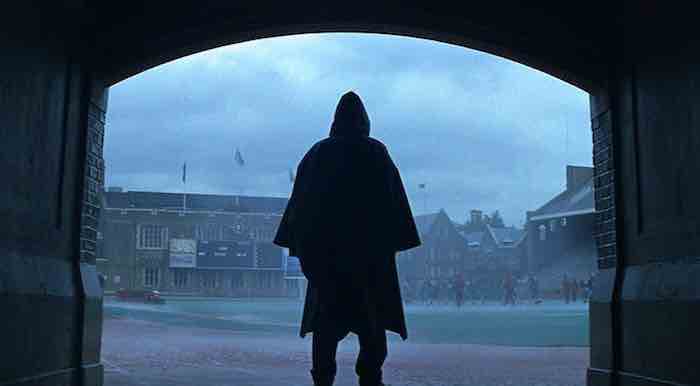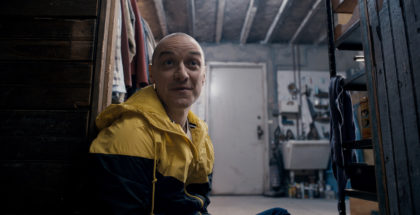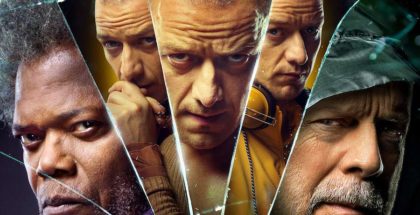Unbreakable: M. Night Shyamalan and belief in the extraordinary
Review Overview
Ordinary reality
10Extraordinary possibility
10David Farnor | On 21, Jan 2017
Director: M. Night Shyamalan
Cast: Bruce Willis, Samuel L. Jackson, Robin Wright
Certificate: 12
After his breakout hit The Sixth Sense, M. Night Shyamalan was destined to become known as the king of the twist ending. But his 2000 follow-up, Unbreakable, revealed him to be something else entirely: a storyteller with a fondness for magical realism, closer to Spielberg than Hitchcock.
It’s a theme that runs through all of his work, whether misjudged blockbuster or closed-off drama: from Signs, a story of one priest’s faith, and The Village, an examination of religion as a form of control, to The Last Airbender, a fantasy where people can control the elements telekinetically, Shyamalan is a director fascinated by the force of belief. That’s even true of his latest, Split (now in cinemas), which dares us to accept its main character’s conviction that the mind’s power could effect external, physical change. For better or worse, Shyamalan’s twist is always the same: that the extraordinary can be found in the ordinary.
It’s used to chilling effect in The Sixth Sense’s ghostly horror, but it’s refined and distilled in Unbreakable, which is his masterpiece.
The belief, in this case, belongs to Elijah (Samuel L. Jackson). Raised like a fragile box of glass by his mother (Charlayne Woodard), he learns very quickly that he’s got osteogenesis imperfecta, a condition that leaves his bones able to fracture at the slightest pressure. His theory? If he’s that weak, surely someone else is at the opposite end of the spectrum and can’t be harmed?
His answer seems to come in the form of David Dunn, whom we meet as he travels into town on the train. In a piece of casting to rival Keanu Reeves in John Wick, Bruce Willis is superbly unassuming as the husband and father, a guy with the muscular, physical heft to counter his muted presence. It’s almost no surprise when we discover that his train derailed and that he made it out alive. What is a surprise, though, is that there isn’t a scratch on him.
It sounds incredible, but Shyamalan’s skill lies in making it absolutely credible: he roots this impossible miracle in the everyday with downbeat wit and a studied air of cynicism.
Dunn isn’t a perfect, ideal man, but someone going through a strained patch in his marriage – a situation made all the more painfully realistic by Robin Wright as his spouse, Audrey. He’s told he’s unharmed by a doctor (played by House of Cards’ Michael Kelly with all the silky calm you’d expect), but the conversation takes place in the background of a busy hospital, as another survivor shockingly bleeds out in front of the camera. That juxtaposition of mortality and something more is even mined for moving humour, as David’s son, Joseph (Spencer Treat Clark), begins to buy Elijah’s argument and seeks concrete proof by digging out the gun from the kitchen drawer. “Friends listen to each other! And they don’t shoot each other, do they, Audrey?” cries Willis. “No shooting friends, Joseph,” comes her startled reply.
The narrative is laced with glimpses of something noble and heroic, from David’s choice of career – a security guard – to his instincts for spotting a dangerous man in a crowd. That bleeds into the visuals, too: Shyamalan composes his screen like frames in a comic book, from shots of Dunn standing in the rain, his cagoule almost costume-like in its simple, curved lines, to pointed close-ups and silhouettes surrounded by shadow. It’s the most striking use of graphic novel imagery since Ang Lee’s Hulk, made all the more effective by the way things unfold like a 70s thriller rather than a modern blockbuster; much like his best work, Shyamalan’s biggest rug-pull is the way he can bend one genre into another. And so Unbreakable is full of slow, paranoid camera movements, long tracks that zoom in and out with character beats – a central weight-lifting scene, lit and shot with a soft glow from above, tingles with atmosphere – and a quiet piano score with just a hint of a brass theme rising up.
Against this melancholic world of greys, greens, blues and blacks (DoP Eduardo Serra went on to work on Deathly Hallows Part 1 and 2), Elijah really does stand out like a comic book character, with his gold jacket, his love of purple, and his elaborate cane. The fact that he’s played by Samuel L. Jackson adds to the mundane nature of the spectacular; in a Marvel movie, he’d try recruiting this suspiciously strong man to join The Avengers, but here, he’s in a wheelchair, quizzing Dunn on his sick day record at work. It’s a conscious decision by Elijah, of course, to wear such bold colours; he’s a man who lives his life through the prism of comic books, who really does think that David is Unbreakable. The film’s title isn’t just an adjective; it’s an ideological statement. Elijah fanatically projects it into the world around him, as if the very thought could make it happen. His is an irrational concept made rational, from the history of pictorial story-telling in human civilisation to the medically plausible roots of the most implausible feats. If what we’re watching is the birth of a genuine superhero, then it’s the kind of origins story that only Shyamalan could ever conceive – something that feels increasingly true 16 years later, as more generic franchise reboots and sequels race into multiplexes.
172,000 comic books are sold in the US every day, the film’s opening titles tell us. In 2017, that number has undoubtedly increased. With its theme of self-discovery, Shyamalan’s follow-up to The Sixth Sense is a study in that need for the potential of something more, of the hope that heroes can inspire and the sense of purpose they can bring. Grounded in a real universe, where villains rely on the power of their brains over their bodies, it’s an explicit, ambitious call to look past the ordinary and believe in the extraordinary. Over a career that has occasionally seen that earnest call become muddled (The Happening) or veer into flashes of self-importance (The Lady in the Water), Shyamalan’s raison d’etre has rarely been so clear or so powerful.


















